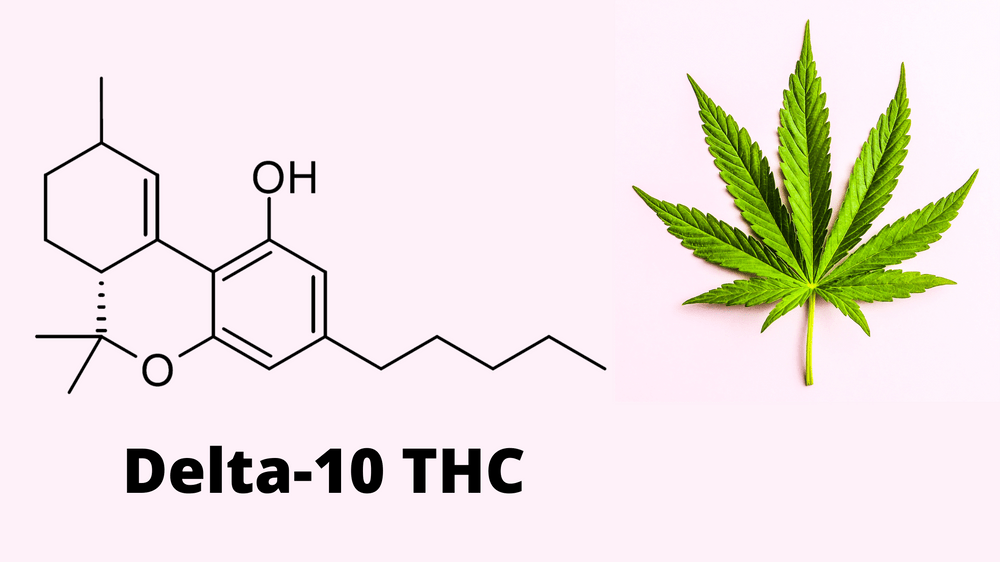What Is Delta-10 THC and Should You Use It?

Delta-10 THC is a lesser-known cannabinoid that has gained attention in the world of cannabis and hemp products. It is one of the many compounds found in the cannabis plant, alongside well-known cannabinoids like delta-9 THC (the primary psychoactive compound in cannabis), CBD (cannabidiol), and others. Delta-10 THC is structurally similar to delta-9 THC but has some distinct differences in its effects and properties. In this response, I’ll explain what delta-10 THC is and provide some information on its potential uses and safety considerations.
1. What is Delta-10 THC?
Delta-10 THC, short for delta-10 tetrahydrocannabinol, is a naturally occurring compound in the cannabis plant, just like delta-9 THC and CBD. It is a psychoactive cannabinoid, which means it can affect the mind and body when consumed, although it typically has less potent psychoactive effects compared to delta-9 THC.
Delta-10 THC is derived from the degradation of delta-9 THC, which can occur through exposure to light, heat, or air. It is present in very low concentrations in the cannabis plant, and its discovery and isolation have been relatively recent. It is often found in trace amounts in hemp plants, as well.
2. Effects of Delta-10 THC: The effects of delta-10 THC can vary from person to person, and there is limited scientific research on this compound compared to delta-9 THC and CBD. However, users have reported experiencing effects that are somewhat similar to delta-9 THC, such as mild euphoria, relaxation, and a sense of well-being, but with less intensity. Some users describe delta-10 THC as being more stimulating than delta-9 THC, which may lead to increased focus and alertness. It is often referred to as a “functional” or “clear-headed” high.
3. Should You Use Delta-10 THC? Whether or not you should use delta-10 THC depends on several factors, including your individual preferences and goals, as well as legal considerations in your area. Here are some important points to consider:
a. Legality: Delta-10 THC may be subject to the same legal restrictions as delta-9 THC, depending on the laws in your region. It’s essential to be aware of the legal status of delta-10 THC in your area before using it.
b. Personal Tolerance and Sensitivity: Like any cannabis product, the effects of delta-10 THC can vary based on an individual’s tolerance, sensitivity, and overall health. If you are new to cannabis or have a low tolerance, it’s crucial to start with a low dose to assess your reaction.
c. Desired Effects: Consider why you are interested in using delta-10 THC. If you’re looking for mild psychoactive effects with a clear head, it might be a suitable choice. However, if you’re seeking more potent or therapeutic effects, you may want to explore other cannabinoids like delta-9 THC or CBD.
d. Product Quality: The safety and quality of the delta-10 THC product you choose are essential. It’s important to purchase from reputable and licensed sources to ensure you are getting a reliable and safe product.
e. Potential Risks: Like other cannabinoids, delta-10 THC can have side effects, such as dry mouth, red eyes, increased heart rate, and in some cases, anxiety or paranoia. It’s essential to be aware of these potential side effects and monitor your own reactions when using delta-10 THC.
4. Research and Regulation: As of my knowledge cutoff date in January 2022, there is limited scientific research on delta-10 THC, and regulatory agencies may not have established clear guidelines for its use or production. It’s important to stay informed about any updates in regulations and research regarding delta-10 THC, as the landscape may have evolved since that time.
In conclusion, delta-10 THC is a relatively new and less well-studied cannabinoid that offers some unique effects compared to delta-9 THC and CBD. Whether you should use it depends on your goals, individual preferences, and legal considerations. As with any cannabis product, it’s essential to use it responsibly and be aware of potential risks and side effects. If you are considering using delta-10 THC, it’s advisable to consult with a healthcare professional or a knowledgeable cannabis specialist to make an informed decision.




